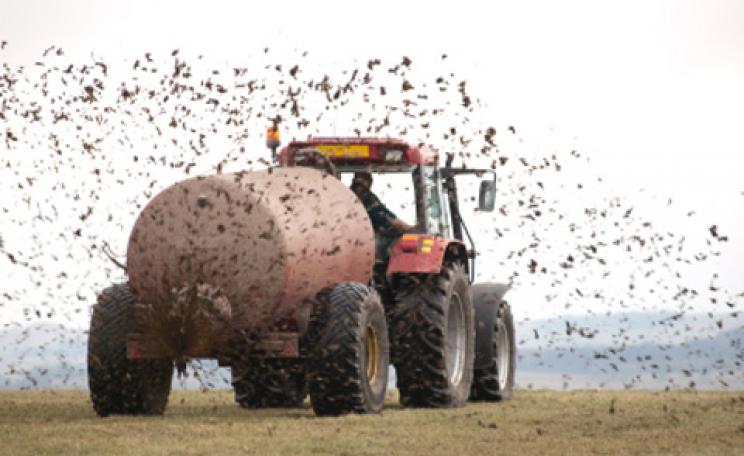One man's terrorist, so the saying goes, is another man's freedom fighter, and the same can be said for pirates.
Francis Drake was a war hero to the English, but a privateer to the Spanish. People who download music or films from the internet are no better than thieves in the eyes of corporate media, but others see them as liberators of the creative commons.
So it comes as no surprise that the pirates off the coast of Somalia who are causing such problems for international shipping magnates are viewed somewhat differently in their home country. According to a BBC report from the Somali town of Garowe, the pirates prefer to call themselves 'coastguards'.
Guard duty
The coast they are guarding straddles some 2000 miles, the longest national stretch on the African continent, and is under assault from two forces. The first of these was revealed to BBC World Service listeners late in 2008 when the twelve year old daughter of a BBC reporter based in London pleaded 'Mummy can I ring the pirates' and to everyone's surprise made contact with a Somali called Daybad talking from the bridge of the highjacked tanker Sirius Star.
Daybad claimed that Somalis were left with no choice but to take to the high sea:
'We've had no government for 18 years. We have no life. Our last resource is the sea, and foreign trawlers are plundering our fish'.
If the international media were more on the ball, and governments of rogue fishing nations cared more about the resource problems of the world's poor, then this matter might have been addressed before Somali fishermen turned en masse to piracy.
In 1999, the Somali Maritime and Fisheries Institute published a paper describing in detail how factory ships from developed and developing nations were pillaging Somalia's fishery:
'The illegal fishing vessels stay in deeper waters during the day but come closer to the shore at night. They apply their destructive fishing techniques, which reduce the local population's harvest and damage nets and traps set by local fishermen. . . . Some of these vessels are equipped with large purse seines while others set and haul their colossal nets from the stern, quickly processing and deep-freezing nearly all the fish they catch, working around the clock in all even the worst weather conditions . . . The draggers [North American term for trawlers] target huge aggregations of fish when they are spawning, a time when the fish population is highly vulnerable to capture and to the physical impacts of the bottom-trawling gear on the environment.'
The report gave a list of the countries of origin of the offending boats: China, France, Germany, Great Britain, Honduras, India, Italy, Japan, Kenya, Korea, Pakistan, Portugal, Saudi Arabia, Soviet Federation, Spain, Sri Lanka, Taiwan, Thailand and Yemen. The authors warned: 'This is a critical time for the world at large, in particular international organisations, to integrate Somali people with their environment and safeguard their natural resources.'
Yet seven years later Somali fishing organisations were appealing to the UN and to the international community for action against what was now an estimated 700 foreign boats plundering their waters, some of them armed.
'It is now normal to see them on a daily basis a few miles offshore,' stated a fisherman called Jeylani Shaik Abdi. 'They are not only taking and robbing us of our fish, but they are also trying to stop us from fishing. They have rammed our boats and cut our nets.'
Toxic waste
But fishing isn't the only form of aggression into Somali waters. Since the early 1990s ships from industrialised countries have been dumping nuclear and chemical waste into Somali waters. A Swiss firm called Achair Parterns, and an Italian waste company called Progresso — allegedly contracted to respectable European companies — made a deal with Ali Mahdi, one of the warlords who took over power after the overthrow of Siyad Barre, that they could dump containers of waste material in Somali waters. Al Madhi was said to be charging about $3 a ton, whereas to properly dispose of waste in Europe costs about $1000 a ton.
In 2004, the Tsunami washed ashore several leaking containers, which according to Nick Nuttall, a spokesman for the United Nations Environmental Program, contained 'uranium, radioactive waste, lead, cadmium, mercury and chemical waste'. Locals in the Puntland region of Somalia started to complain of severe and previously unreported ailments, such as abdominal bleeding, skin melting off and a lot of immediate cancer-like symptoms. The dumping still continues to this day, according to UN Envoy for Somalia, Ahmedou Ould-Abdallah.
In the face of these assaults, it is hardly surprising that local fishermen should resort to direct action in order to guard their coastline, nor that they should enlist the assistance of former militiamen to provide them with firearms and expertise. Now, as one Somali writer puts it, 'deterence has become less noble, and the ex-fishermen with their militias have begun to develop a taste for ransom at sea. This form of piracy is now a major contributor to the Somali economy'. The pirates have become the new elite: 'They wed the most beautiful girls; they are building big houses; they have new cars; new guns'.
As is so often the case with pirates, one is tempted to admire them for their spirit more than one condemns them for their avarice. But it is hard to feel any sympathy for the governments of the world and shipping fleets who have been so embarrassed by this marine resistance movement — they had it coming.
Useful links
Illegal Fishing and Dumping Hazardous Wastes Threaten the Development of Somali Fisheries and the Marine Environments
Somalia: Fishermen Appeal for Help over Foreign Fishing Ships, Reuters (IRIN News) 9 March 2006
• Knaan, Why We Don't Condemn Our Pirates in Somalia, URB Magazine. April 14, 2009
This article first appeared in The Land magazine, Summer 2009
| READ MORE... | |
 |
HOW TO MAKE A DIFFERENCE Using the law to protect the environment Investigation into the dangers faced by lawyers who champion human rights and environmental justice. |
 |
NEWS ANALYSIS Coca-Cola just part of India’s water ‘free-for-all’ Water scarcity and mis-management in India are creating a significant human and ecological crisis that will only be worsened by climate change |
 |
COMMENT Carbon pricing is planetary Russian Roulette How much would you have to be paid for each bullet loaded into a gun in a game of Russian Roulette? A runner-up in the Ecologist/nef essay competition... |








